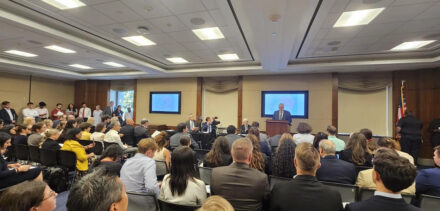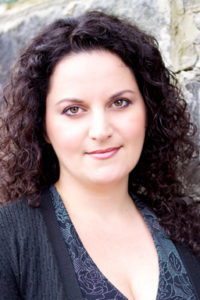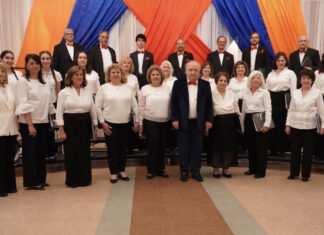By Florence Avakian
NEW YORK — The Eastern Diocese’s Krikor and Clara Zohrab Information Center was the venue to hear a riveting account of childhood dreams crushed, the daily fear of violence, and escape from country to country in search of a safe home.
On Thursday, November 13, Anna Astvatsaturian Turcotte related the harrowing story of her family’s life in Baku during the ethnic cleansing of Armenians by Azeri Muslims. The story recounted in Nowhere: A Story of Exile includes their flight to Armenia — at a time when it was teetering on the edge after the disastrous 1988 earthquake — and their eventual emigration to America.
The Zohrab Information Center sponsored the lecture. Its director, the Very Rev. Daniel Findikyan, called the book, “an extraordinary memoir documenting the heartbreaking story of the 1988 pogroms against the Armenians in Baku.” The Azeri terrorists who went from door to door with prepared addresses of their Armenian victims also committed the atrocities against the Armenians in Sumgait and Kirovabad.
The speaker has traveled to several locales presenting her book to both Armenian and non-Armenian audiences. She began her talk by pointing out that in Azerbaijan it was dangerous to name Armenian children with Armenian names, and so she was called Anna: “a safer version of Anoush.” She was 10 when the brutalities began in Baku, and kept a diary from ages 14 to 16 of her family’s struggles in Azerbaijan, Armenia, and America.








